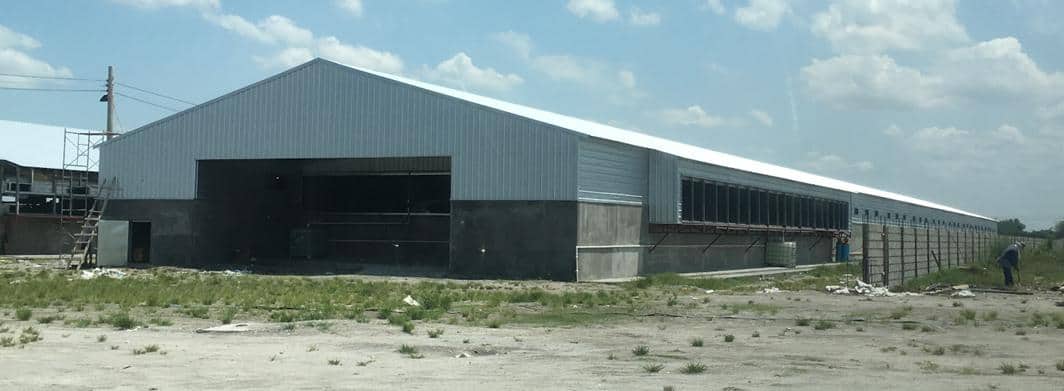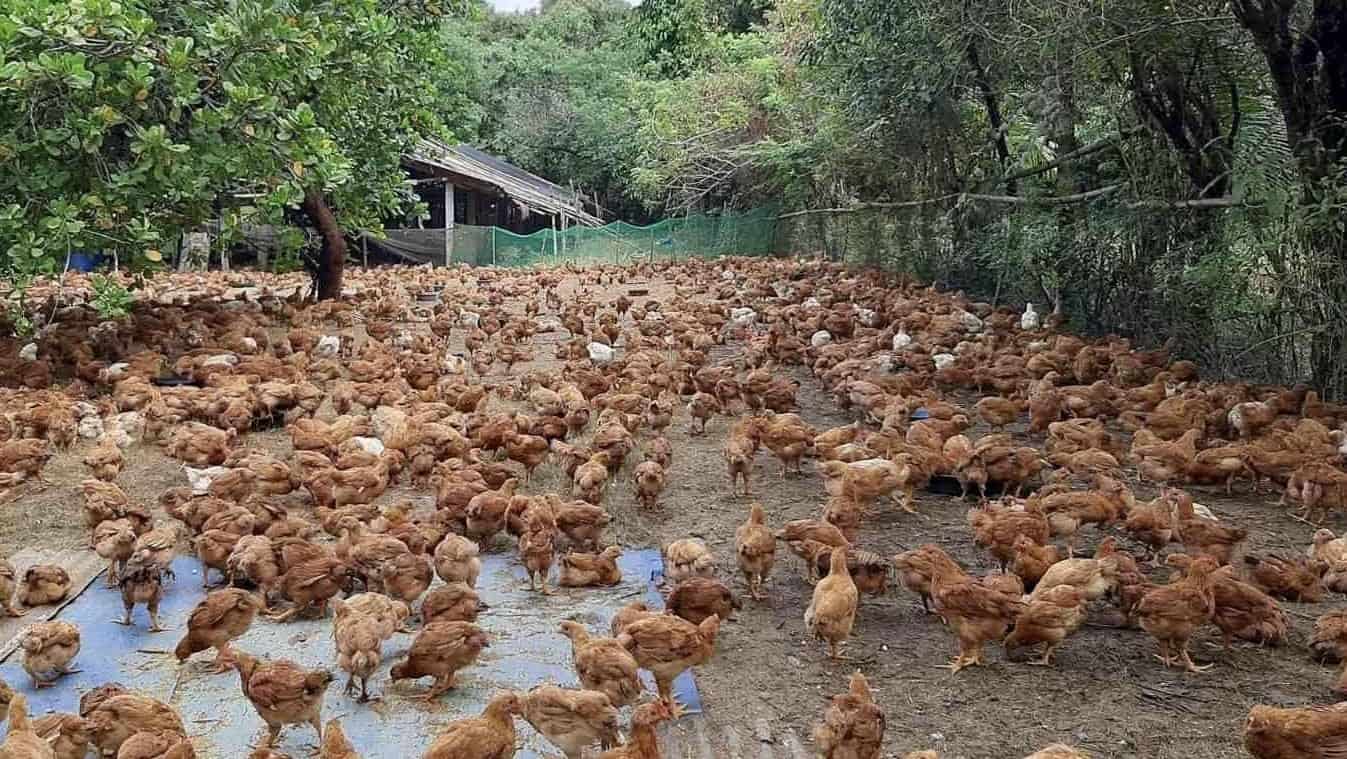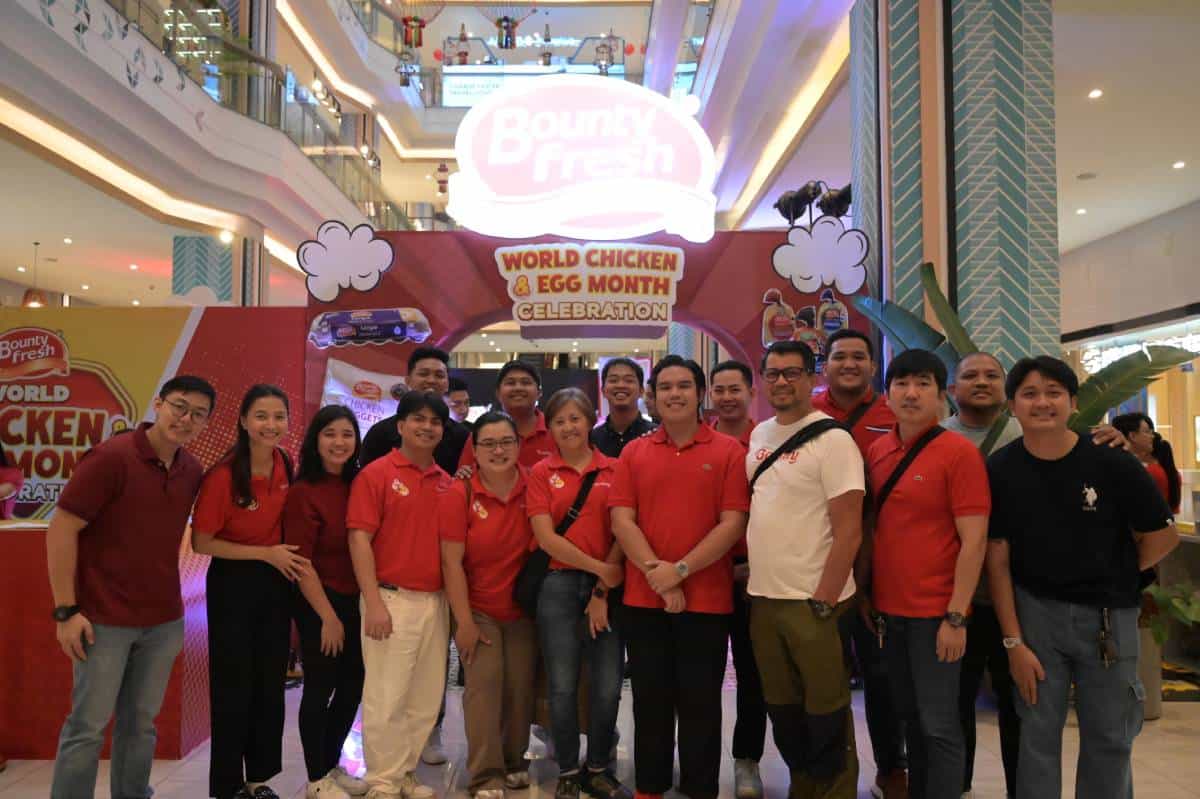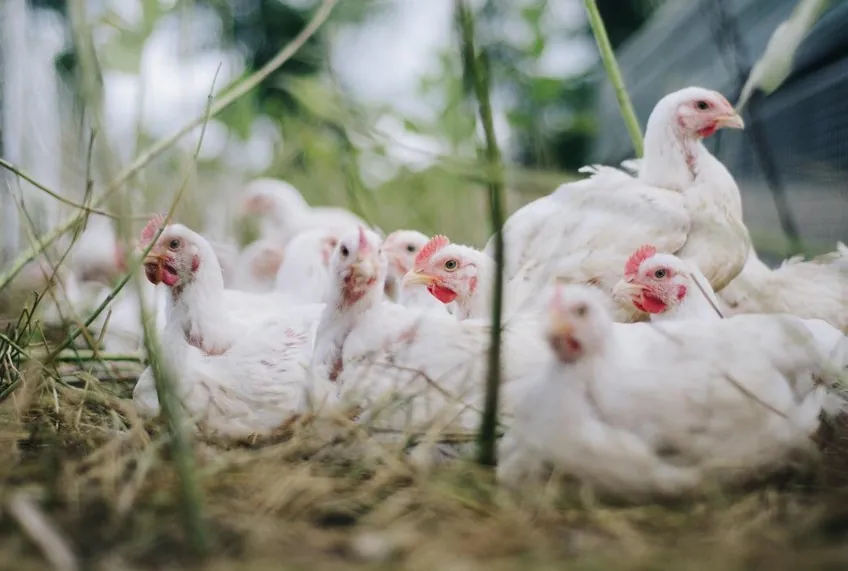Raising chickens is an increasingly popular choice for small-scale farmers and backyard enthusiasts. These birds not only provide a steady source of eggs and meat but also bring joy with their quirky personalities. To ensure your chickens are happy and healthy, proper care is essential. This guide will walk you through the critical steps of raising chickens, from basic needs to different farming methods, including free-range chicken farming. Let’s explore how to raise chickens and create an environment that keeps them comfortable.
Taking Care of Chickens: The Basics
Caring for chickens involves more than just feeding them and collecting eggs. It requires attention to their living conditions, diet, hygiene, and overall health. Here’s what you need to focus on to ensure your chickens live a healthy, happy life.
1. Nutrition
Provide a balanced diet with layer or broiler feed, fresh clean water, grit for digestion, and calcium supplements for strong eggshells. Broiler chickens require high protein and energy diets to achieve rapid growth. Layer hens need more calcium and less protein compared to broilers. For free-range chickens, let chickens forage for scraps, bugs, and greens to keep them engaged. By providing a well-rounded and nutrient-rich diet tailored to your chickens’ age and purpose, you can enhance their health and productivity, ensuring a thriving flock
2. Housing
Provide a balanced diet with layer or broiler feed, fresh clean water, grit for digestion, and calcium supplements for strong eggshells. Broiler chickens require high protein and energy diets to achieve rapid growth. Layer hens need more calcium and less protein compared to broilers. For free-range chickens, let chickens forage for scraps, bugs, and greens to keep them engaged. By providing a well-rounded and nutrient-rich diet tailored to your chickens’ age and purpose, you can enhance their health and productivity, ensuring a thriving flock
General Type of Poultry Housing
1. Conventional/ Traditional Open-sided
Colored/Free Range
- Colored/Free Range chicken is a meat-type bird that has a comparable taste to our Philippine Native Chicken, but its meat is more tender because it grows faster.
- Like the Native Chicken, these birds are ranged in open areas in which they can forage and find food from naturally available food sources.
- These birds are well suited to our climatic conditions with better growth rate, and feed conversion compared to our native chicken without compromising disease resistance.
- Floor space for brooding- 0.5 sq ft/bird. The house should have a floor space of 1 sq ft/bird at expansion.
- Applies natural ventilation. There is no air exchange in the house unless the wind is blowing and the curtains are properly adjusted.
Conventional Broiler House
- Unlike Colored/Free Range chicken, Broiler chickens are susceptible to sudden change in weather conditions and have low disease resistance. Broilers are not ideal for ranging in open areas and proper housing is needed to provide a better environment to the birds.
- Conventional Broiler House is a traditional broiler house that uses natural ventilation.It uses side inlets, ridge vents, and curtains that need to be opened for air exchange. There is no air exchange in the house unless the wind is blowing and the curtains are properly adjusted.
- Similar 1sq ft/bird is used for its stocking density to prevent faster heat build-up and to facilitate better air circulation
- Elevated for better removal of manure and should be protected from predators like cats, dogs, monitor lizards, snakes etc.
2. Controlled Environment System (CES, “Tunnel-ventilated”)
- 7-8 grows a year (30 days growing period + 14 days downtime)
- Closed system (tunnel-ventilated)
- Wind-tunnel effect (‘controlled”)
- Automated equipment
- Minimal impact on the environment/surrounding community & less fly infestation
- Stocking density = max. 0.55ft.2/bird
Advantages of Controlled Environment System (CES)
- Higher Stocking Density (more birds loaded)
- Birds grow faster, heavier, and uniformly (optimum environment)
- Shorter growing period = more cycles per year
- Better broiler efficiency
- Minimal impact on the environment/surrounding community and less fly infestation
Floor-Type-of-Housing-Litter-Type-Slatted

Elevated Type of Housing

3. Health Care
Ensure basic biosecurity protocols are being implemented on the farm, specifically tire or vehicle spray upon entry into farm premises, provisions of hand washing or sanitation, and a footbath or foot dip before entering the gate and the poultry house. Avoid going to wet markets and having direct contact with other poultry species 72 hours prior to your farm visit. By adhering to biosecurity protocols, we can minimize the potential risks to our flock and improve the overall health and well-being of the chickens.
To maintain good health, optimum growth, and performance, and prevent or treat prevailing disease/s medicines in the form of multivitamins and minerals, probiotics, prebiotics, and acidifiers, among others are being supplemented. The standard core vaccination program prescribed by our veterinarians must be properly administered at the right time and right way to make sure that our chickens will develop immunity or protection from common viral diseases.
In achieving optimum animal health, the administration of medicines and vaccines is never meant to replace or substitute biosecurity, sanitation, and good farm management.
Different Ways to Care for Chickens: Based on Chicken Types
Different types of chickens require different methods of rearing. At Bounty, we raise three types of chicken:
1. Broiler Chicken
Broiler chickens are raised for their meat. These are the ones you can buy at the market as whole chicken or as cut-ups. As mentioned above, these are usually reared in either conventional or controlled environment systems of housing.
During the brooding period or the first two weeks of the chicks, an artificial source of heat must be provided to them since they cannot regulate their body temperature yet. Fresh feeds and good quality water should always be readily available to them. Ensure a sufficient number of feeders and drinkers are placed inside the building to avoid competition for feeds and water. This depends on the volume of chickens that you are raising and on the recommended bird-to-equipment ratio for each type of feeder and drinker. Environmental stress that may affect their growth should be minimized. This can be done best in controlled environment systems by providing optimum ventilation that keeps environmental conditions inside the poultry house suitable for the growth of the chickens.
Broilers are usually raised for an average of 30 days, depending on the desired harvest weight.
2. Free-Range Chicken
Free-range chickens, like broilers, are also meat-type poultry. The difference lies in the way these chickens are reared. This type of chicken is brooded for three weeks in a shed that has provision for confinement and supplemental heaters and brooding guards. After the brooding period, they are allowed to have access to the outdoors for foraging and finding food from naturally available sources. This is similar to what they call “native” chickens. It is also important to provide sheds around the ranging area where they can take shelter during the hottest part of the day or during heavy rains. Provide also waterers or basins with water in the ranging area so that they can have easy access to water. Feeds should also always be available in the shed. The ranging area should be well-secured to protect the chickens from predators and it should also be rotated so as not to deplete the nutrients in the soil. Preventive medication and vaccination may be given to boost the chickens’ immunity to diseases.
Free-range chickens are raised relatively longer than regular broiler chickens since most of their energy is spent on ranging and movement and they are reared in a less optimum environment. They can also be slow- or fast-growing depending on the breed used. On average, free-range chickens are harvested around 45 days at 1.50-1.60 kg.
3. Layer Chicken
Layer chickens are raised primarily for their eggs. Like broilers, they can also be raised in a conventional house or Controlled Environment Systems. They may also be raised in cage systems or floor systems.
Chicks should also be supplied with heat during brooding period. Ensure that fresh and good quality feeds, and potable and clean water are available at all times. A balanced and nutritious diet is essential for chicks to develop into mature pullets. Phase feeding is done during the laying period.
Provide proper ventilation programs to ensure environmental conditions are optimal for the birds. Do vaccination to prevent diseases. Supplementing vitamins can help reduce stress and prevent undesired reactions after vaccination. As for lighting, implement an applicable lighting program since this controls the onset of lay and also affects the performance of the flock. Never increase hours of light during the rearing period until the planned start of stimulation and never decrease hours of light during the production period. Check the following at least once daily:
- Health status
- Temperature
- Ventilation
- Feed and water consumption
- Lighting
- Mortality
Collect eggs at least once a day and store them at temperatures between 5-10℃ with a relative humidity of between 80%-85%. For Non-cage housing, ensure good nest quality since this affects egg quality as well.
At Bounty Fresh Group, we pride ourselves on innovation, sustainability, and social responsibility. We are also an advocate of animal welfare and we do that by implementing good animal husbandry practices on all our farms. We aim to continue our sustainable practices through our modernized farming practices. These practices aim to leave a positive impact that not only benefits us today but also many years down the line.
Start Caring for Your Chickens Today
Taking care of chickens may seem daunting at first, but with the proper knowledge and approach, it can be a rewarding experience. Whether you’re raising them for eggs, meat, or companionship, ensuring your chickens are healthy and happy is the foundation of a thriving flock.
From providing proper nutrition and housing to choosing the suitable farming method, every decision you make impacts your chickens’ well-being.
Now that you’ve learned how to care for chickens, it’s time to start your journey towards happier, healthier birds. Whether you’re managing a large farm or a small backyard coop, following these steps will lead to a successful flock.
For Bounty Fresh Group, success means leading the way toward a better future for the industry, the environment, and the people it serves. To learn more about how we can help you start your poultry business, visit our website at https://bounty.com.ph/contact-growing.






